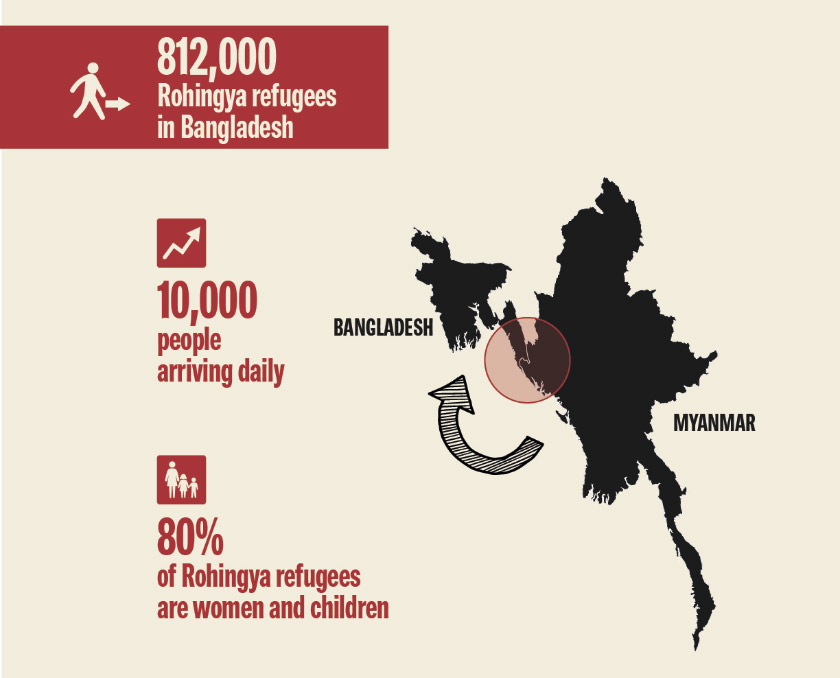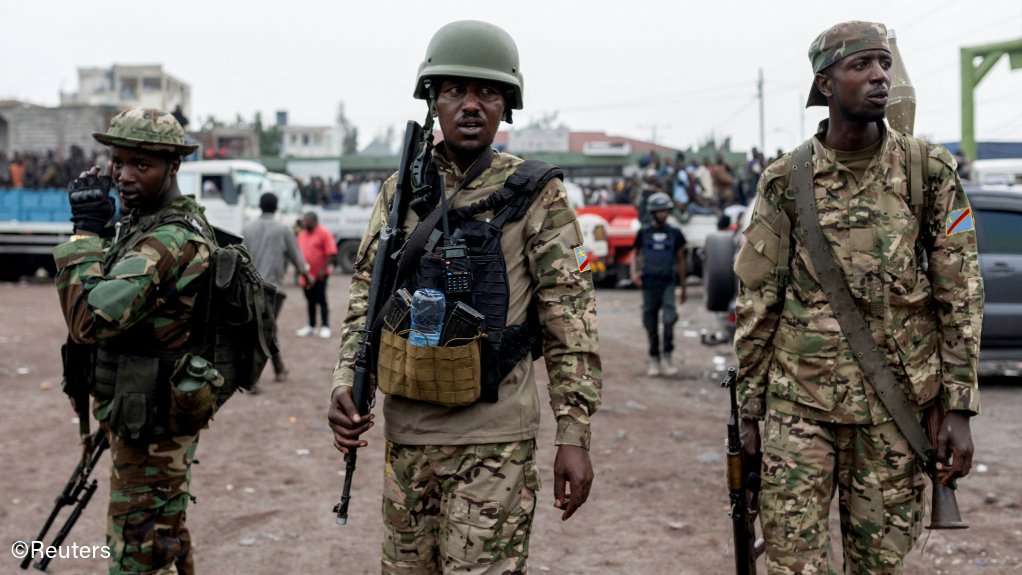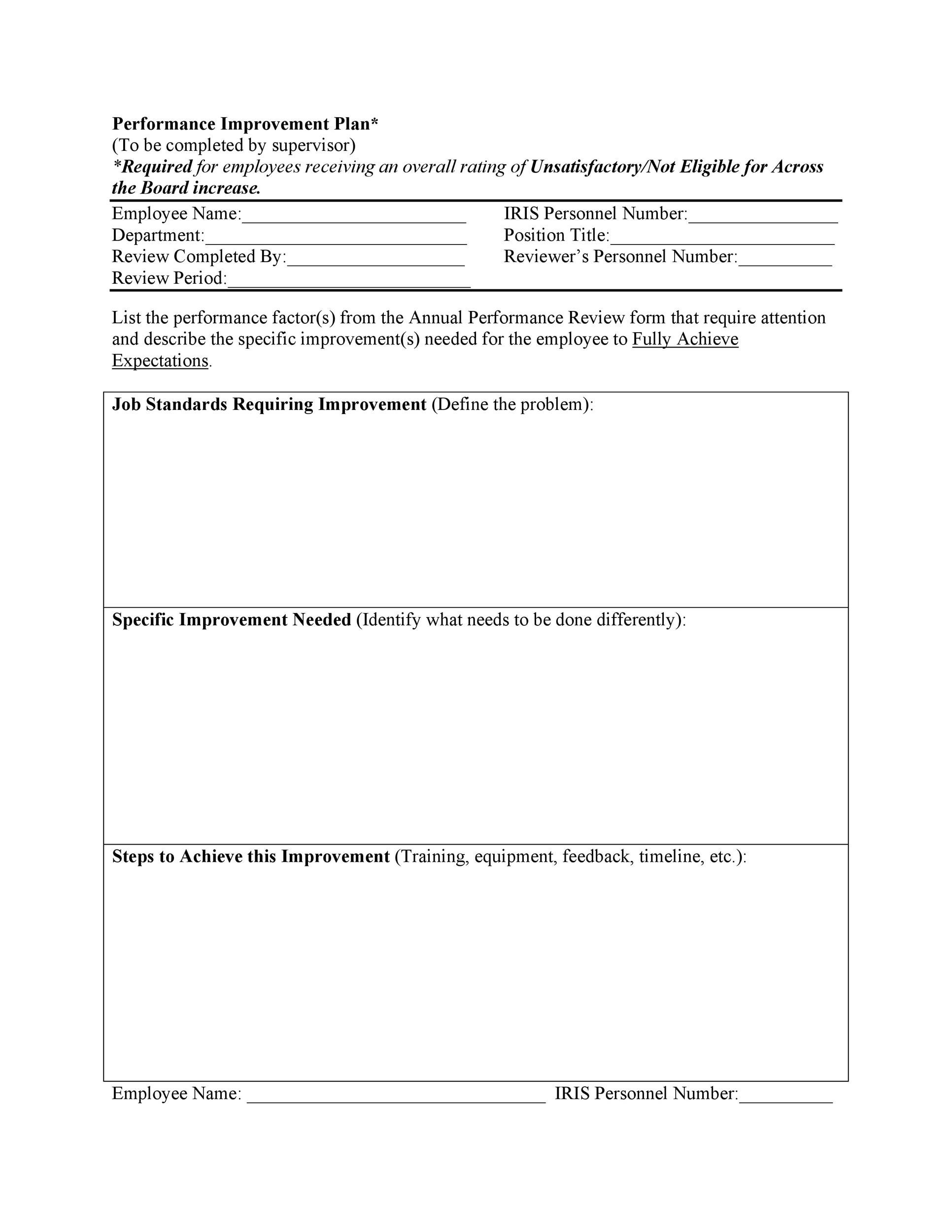Britain And Australia's Myanmar Policy: Selective Sanctions And The Rohingya Crisis

Table of Contents
The Rohingya Crisis: A Humanitarian Catastrophe
The Rohingya crisis is a profound humanitarian catastrophe rooted in decades of systemic discrimination and persecution. The Rohingya, a Muslim minority group in predominantly Buddhist Myanmar (formerly Burma), have faced state-sponsored violence, including ethnic cleansing and genocide accusations against the Myanmar military, often referred to as the Tatmadaw. This long-standing conflict has resulted in:
- Ethnic cleansing and genocide accusations against the Myanmar military: The UN and numerous human rights organizations have documented widespread and systematic human rights violations, including mass killings, rape, and the burning of villages. These actions have been described as amounting to genocide and crimes against humanity.
- Mass displacement and refugee flows to neighboring countries: Over 700,000 Rohingya fled Myanmar to Bangladesh in 2017 alone, adding to a pre-existing refugee population. These mass displacements have created immense strain on resources and infrastructure in neighboring countries.
- International condemnation and calls for intervention: The international community has strongly condemned the violence against the Rohingya, with numerous resolutions passed by the UN Security Council calling for an end to the atrocities and accountability for those responsible.
- The role of the UN and other international organizations: The UN, along with organizations like UNHCR and numerous NGOs, have been instrumental in providing humanitarian assistance to Rohingya refugees and internally displaced persons. However, access to those in need often remains severely restricted due to security concerns and the actions of the Myanmar government.
Britain's Myanmar Policy: A Cautious Approach
The UK government has adopted a policy of targeted sanctions against individuals and entities deemed responsible for human rights abuses in Myanmar. This cautious approach centers on:
- Targeted sanctions: The UK has imposed sanctions on specific Myanmar military officials, including senior leaders and commanders, as well as businesses linked to the Tatmadaw, focusing primarily on military-owned companies involved in sectors like jade mining and timber. These sanctions often include asset freezes and travel bans.
- Diplomatic pressure: Britain actively engages with regional partners, particularly within the ASEAN (Association of Southeast Asian Nations) bloc, to exert diplomatic pressure on the Myanmar junta to cease hostilities and address human rights violations. This often involves collaborative efforts with other Western nations.
- Humanitarian aid: The UK provides substantial humanitarian aid to Rohingya refugees in Bangladesh and internally displaced persons within Myanmar. However, access for aid organizations remains a significant challenge due to restrictions imposed by the Myanmar military.
- Limitations of the UK's approach and criticisms: Critics argue that the UK's sanctions regime is insufficiently robust and lacks the scope to effectively deter the Myanmar military. Some call for broader sanctions targeting the entire military and a more forceful international response.
Effectiveness of British Sanctions on Myanmar
The impact of British sanctions on the situation in Myanmar is a complex issue.
- Have the sanctions influenced the Myanmar military's behavior?: While it's difficult to definitively prove a direct causal link, some argue that targeted sanctions have at least contributed to raising awareness and placing pressure on specific individuals and entities.
- What are the unintended consequences of selective sanctions?: Targeted sanctions can have unintended consequences, potentially harming the wider Myanmar economy and innocent civilians, particularly those already vulnerable.
- Are they sufficient to address the scale of the crisis?: Many argue that the current selective sanctions are not sufficient to address the scale and severity of the crisis and the ongoing violence. A broader, more comprehensive approach may be necessary.
- Potential for stronger measures and increased international cooperation: Increased international cooperation and the imposition of more comprehensive sanctions targeting the entire Myanmar military are seen by many as crucial steps toward ending the crisis.
Australia's Myanmar Policy: Similar Strategies, Different Emphasis
Australia's approach to the Myanmar crisis mirrors the UK's in some respects, employing similar strategies but with a slightly different emphasis:
- Sanctions imposed by the Australian government: Australia has also implemented targeted sanctions against key individuals within the Myanmar military and associated businesses, focusing on those most responsible for human rights abuses.
- Focus on human rights violations and accountability: Similar to Britain, Australia's policy emphasizes the importance of accountability for those responsible for atrocities against the Rohingya population. This includes support for international efforts to investigate and prosecute human rights violations.
- Cooperation with regional partners (ASEAN): Australia actively collaborates with regional partners, especially within ASEAN, to encourage a diplomatic solution and exert collective pressure on Myanmar.
- Support for international efforts to resolve the crisis: Australia actively supports UN initiatives and other international efforts aimed at resolving the conflict, providing humanitarian aid, and promoting accountability.
Comparing Australian and British Approaches to Myanmar Sanctions
Both countries' approaches share similarities, but there are also subtle differences:
- Comparison of sanction targets and scope: While both countries target specific individuals and entities, the exact lists and scope of sanctions may vary slightly.
- Assessment of the impact on the Myanmar junta: The overall impact of these sanctions on the Myanmar junta remains a subject of ongoing debate and analysis. It's difficult to isolate the effect of sanctions from other contributing factors.
- Effectiveness of diplomatic engagement: Both countries actively engage in diplomatic efforts, but the effectiveness of this engagement is limited by the junta's unwillingness to cooperate.
- Areas for potential improvement in their joint strategy: Improved coordination between Britain, Australia, and other like-minded countries is crucial to maximizing the impact of sanctions and promoting a unified international response.
Conclusion
Britain and Australia's Myanmar policies have relied heavily on selective sanctions targeting individuals and entities responsible for human rights abuses. While these sanctions have played a role in raising awareness and applying pressure, their effectiveness in halting the violence against the Rohingya remains questionable. The challenges in balancing humanitarian concerns with political realities are evident. The ongoing crisis highlights the limitations of targeted sanctions alone.
A more comprehensive and coordinated international effort is needed to address the ongoing crisis in Myanmar. The international community must consider stronger measures and increased pressure on the Myanmar military junta to end human rights abuses and find a lasting solution. Continued scrutiny of Myanmar policy by nations like Britain and Australia, and greater collaboration with other countries, is essential to securing justice for the Rohingya and preventing future atrocities. A stronger, more unified international Myanmar policy is urgently needed.

Featured Posts
-
 Epic Muslim Mega City Plan Faces Doj Investigation In Texas
May 13, 2025
Epic Muslim Mega City Plan Faces Doj Investigation In Texas
May 13, 2025 -
 Ademola Lookman Transfer Liverpool Face Chelsea Competition
May 13, 2025
Ademola Lookman Transfer Liverpool Face Chelsea Competition
May 13, 2025 -
 The Uneven Application Of Sanctions Britain Australia And The Myanmar Conflict
May 13, 2025
The Uneven Application Of Sanctions Britain Australia And The Myanmar Conflict
May 13, 2025 -
 Salman Khans Underperforming Films A Look At Career Setbacks
May 13, 2025
Salman Khans Underperforming Films A Look At Career Setbacks
May 13, 2025 -
 Analisis Pertandingan Jay Idzes Dan Debutnya Yang Mengesankan Bersama Venezia Vs Atalanta
May 13, 2025
Analisis Pertandingan Jay Idzes Dan Debutnya Yang Mengesankan Bersama Venezia Vs Atalanta
May 13, 2025
